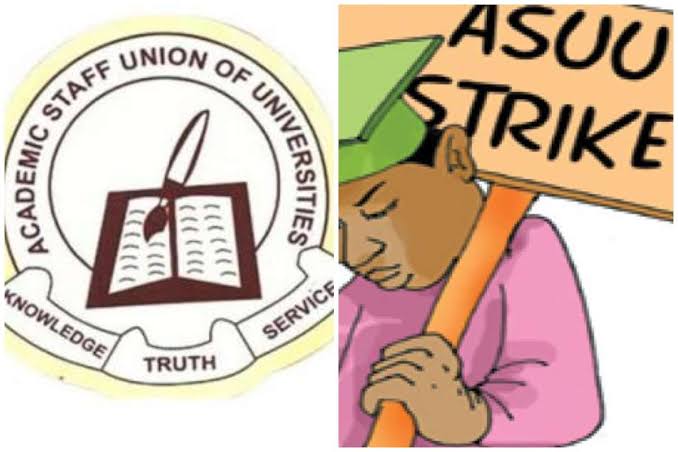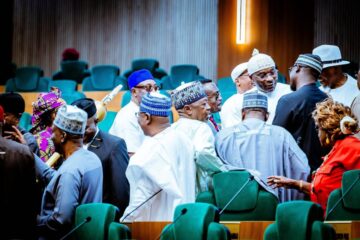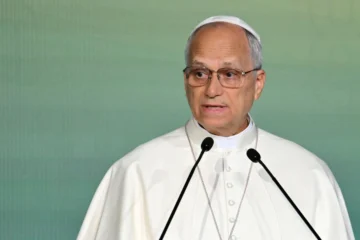Court hears FG’s bid to end ASUU’s strike Monday

ASUU strike
Justice Polycarp Hamman of the National Industrial Court will on Monday hear an application for interlocutory injunction to compel members of the Academic Staff Union of Universities to suspend their ongoing strike, pending the hearing and determination of the substantive suit.
At the resumed hearing on Friday, the plaintiff’s lawyer, Mr. James Igwe (SAN) urged the court to hear his client’s pending application for interlocutory injunction on the grounds that the issue being one of national interest requires utmost urgency.The plaintiff claimed that millions of students had been out of school since February 14, 2022 when university lecturers went on strike, adding that, “Section 47 of the Trade Dispute Act gives your lordship the power to direct that no worker should continue to embark on strike pending when the applications are heard and determined.”
ASUU’s lawyer, Mr. Femi Falana (SAN) objected to the request on the grounds that the plaintiff’s application could not be heard because the court had scheduled the case for further mention.
Falana disclosed further that his client’s leaders were in the process of meeting with relevant stakeholders, including members of the House of Representatives on September 20 to further explore ways of resolving the dispute.
He added, “We are going out of our way to ensure that this matter is resolved and we appeal to the claimant (FG) to cooperate with us.”Igwe opposed the adjournment, on the basis that “there is an affidavit of urgency in national interest for accelerated hearing of the application for injunction seeking to restrain the union from continuing the strike, pending the hearing and determination of the substantive suit.”
On his own part, counsel for the Socio-Economic Rights and Accountability Project, Ebun-Olu Adegboruwa (SAN), prayed the court to make their issue of joinder a matter of priority over every other application before the court, since it concerns jurisdiction.
Adegboruwa said, “I am standing before you on behalf of the students. We urge your lordship to give us an opportunity before the two elephants.”
Making further submissions, the government’s counsel, Igwe explained that the interlocutory injunction supersedes other applications in terms of priority.
“It is saying, let intellectualism not be halted. Let education continue while the elephants continue fighting. This is a matter of national interest. It is not politics. Nobody should play to the gallery. Any adjournment should not exceed 48 hours.”
In a short ruling, Justice Hamman agreed with Falana, and adjourned till Monday for hearing of the suit.
“The matter is for further mention, which means hearing cannot take place”, the judge held, adding that the interlocutory injunction, which has an affidavit of urgency, would be heard first at the next sitting.
Hamman held that the application for joinder by SERAP was not ripe for hearing since it was filed through the office of the Attorney General of the Federation the previous day (Thursday, September 15).
The case filed by the National Association of Nigerian Students against the Federal Ministry of Education and ASUU was later mentioned.
NANS’ lawyer, Debo Ikuesan prayed the court for a definite hearing date for his client’s suit, but Justice Hamman queried the competence of the suit and his court’s jurisdiction to entertain it.
The judge, who questioned the juristic status of the claimant, ordered Ikuesan to file a response on or before September 20 to address both issues.
Responding to questions from journalists outside the courtroom on why it took the federal government seven months before referring the matter to court, Igwe said the government wanted to exhaust all the conciliation processes.
In a related development, President Muhammadu Buhari met with Pro-Chancellors of Federal Universities, with a pledge to engage critical stakeholders in the education sector towards ensuring that the seven-month old industrial action embarked upon by the Academic Staff Union of Universities is called off.
The Federal Ministry of Employment, Labour and Productivity, had approached the industrial court to challenge the refusal of the striking lecturers to end the seven months old strike.











